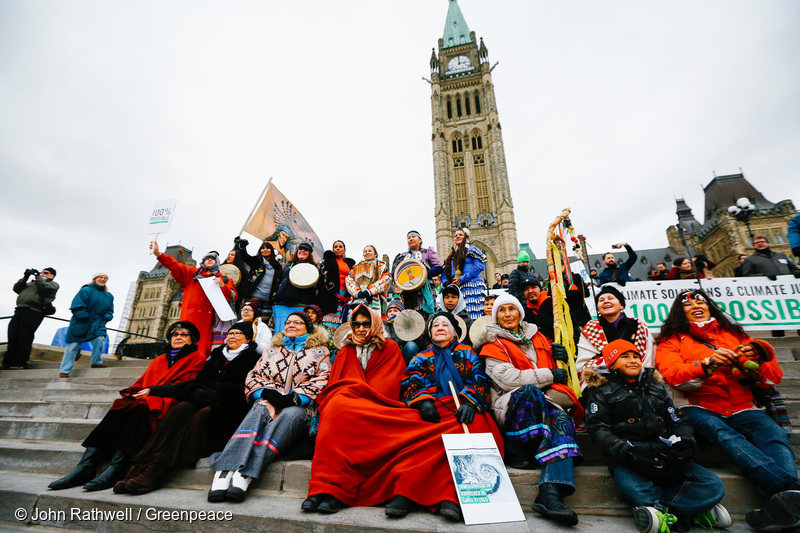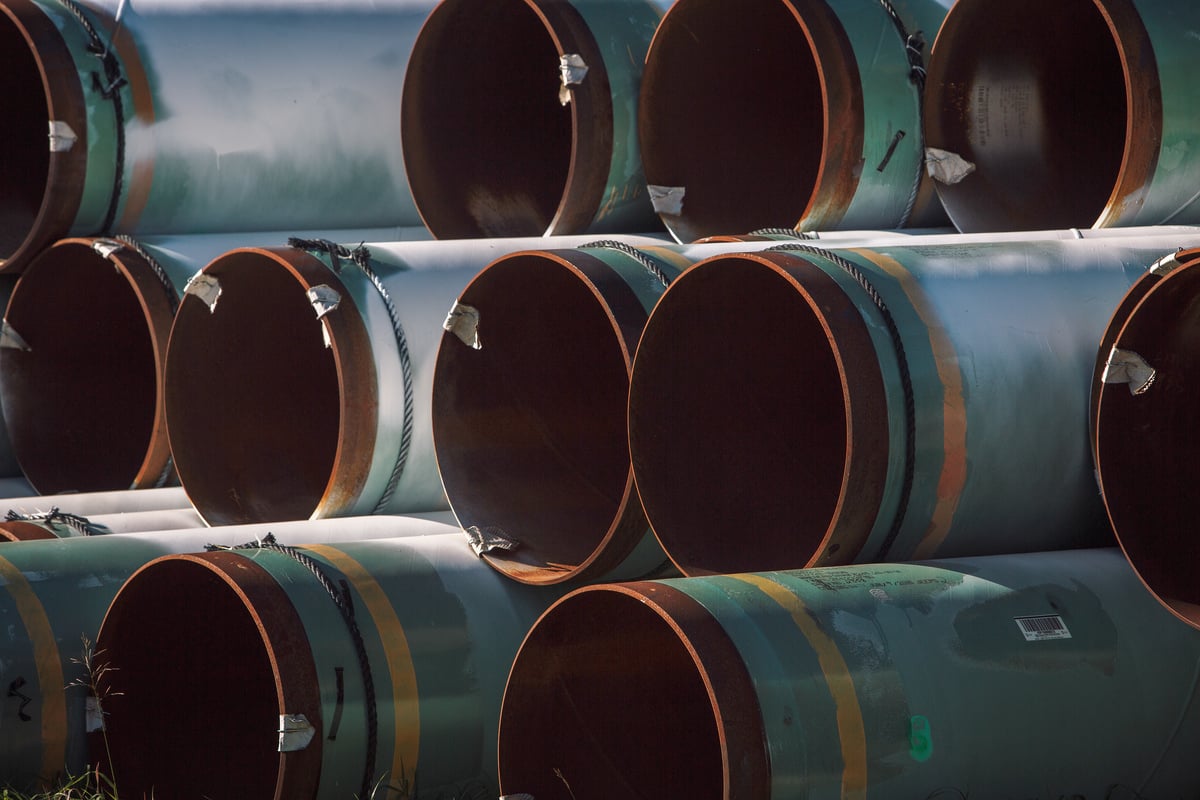VANCOUVER – Sometime late Wednesday, the Pathways Alliance, a consortium of the six largest companies operating in the oil sands, scrubbed all information from their website and social media channels claiming that “amendments to the Competition Act will create significant uncertainty for Canadian companies that want to communicate publicly about the work they are doing to improve their environmental performance, including to address climate change.”
In response, Nola Poirier, Senior Researcher and Writer at Greenpeace Canada said:
“Canadian companies who are walking their climate talk need not worry about changes to Bill C-59. This law will merely ensure that companies do not make false environmental claims. However, the Pathways Alliance does have reason to worry. If scrubbing all information from their website in the face of truth-in-advertising legislation doesn’t make Pathways look guilty of something, I don’t know what does, but like Kenny Rogers said, ‘a gambler’s got to know when to hold ’em, and know when to fold ’em.’ Already the Competition Bureau is investigating the Pathways Alliance to determine whether they have contravened the Competition Act by ‘making false or misleading environmental representations’. For too long fossil fuel companies have been able to greenwash their products and actions. We look forward to strong laws that put an end to false environmental claims and hold companies accountable when they aren’t telling the truth.”
ENDS
Notes to editor:
- On March 15, 2023, Greenpeace Canada submitted a complaint to the Competition Bureau about false and misleading advertising by the Pathways Alliance. The full complaint can be found here: https://www.greenpeace.org/static/planet4-canada-stateless/2023/03/8c835b91-amended-competition-bureau-submission-for-pathways-alliance-ad-campaign.pdf
- In October 2023, Greenpeace Canada submitted further information to support their complaint in the form of an addendum, which can be read here: https://www.greenpeace.org/static/planet4-canada-stateless/2023/12/89e2c999-pathways-complaint-addendum.pdf
- Greenpeace has saved various versions of the Pathways Alliance website on the Wayback Machine. Their original claims that they were “clearing the air” can be viewed here: https://web.archive.org/web/20230113003604/https://pathwaysalliance.ca/
- The terse statement on the Pathways website requests they receive “specific guidance” from the Competition Bureau to help direct their communications. As with the U.S. Federal Trade Commission’s green guides and the UK Competition and Markets Authority’s Green Claims Code, the Competition Bureau has already committed to providing direction on sustainability statements.
- According to the Government of Canada, the amendments to Bill C-59 would “add, to the existing section dealing with representations to the public, a new form of reviewable conduct: a statement, warranty or guarantee of a product’s benefits for protecting the environment or mitigating the environmental and ecological effect of climate change that is not based on an adequate and proper test.” [1]
- The Pathways Alliance plan to reach net zero was based only on emissions from their upstream production, not on the 80% of their emissions that come from use of their products. As well, their plan relied heavily on the use of carbon capture (CCS), an unproven technology that they have not yet constructed, as they have been waiting for taxpayer money to cover the bulk of the costs. The recent Deloitte report commissioned by the Alberta government supports our argument that carbon capture is unlikely to provide a solution to the greenhouse gas emissions of the fossil fuel industry. They state, “Curtailing production would be a more cost-effective option compared to investing in CCS.”
For more information please contact:
Dina Ni, Communications Officer, Greenpeace Canada,
[email protected], + 1 (416) 820-2148
______________________________________
Government of Canada. https://www.justice.gc.ca/eng/csj-sjc/pl/charter-charte/c59.html see the section: Representations of a product’s benefits for the environment



